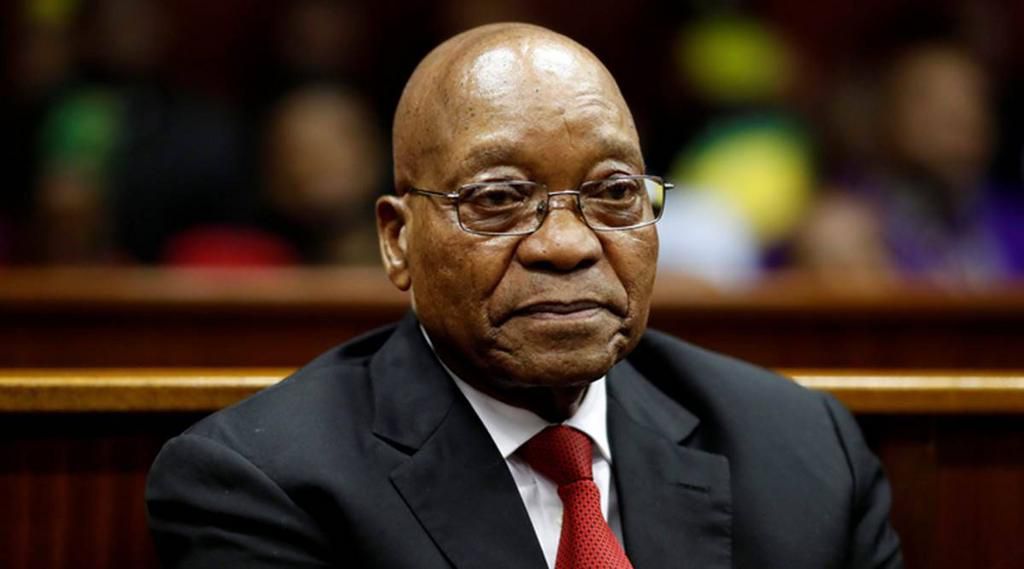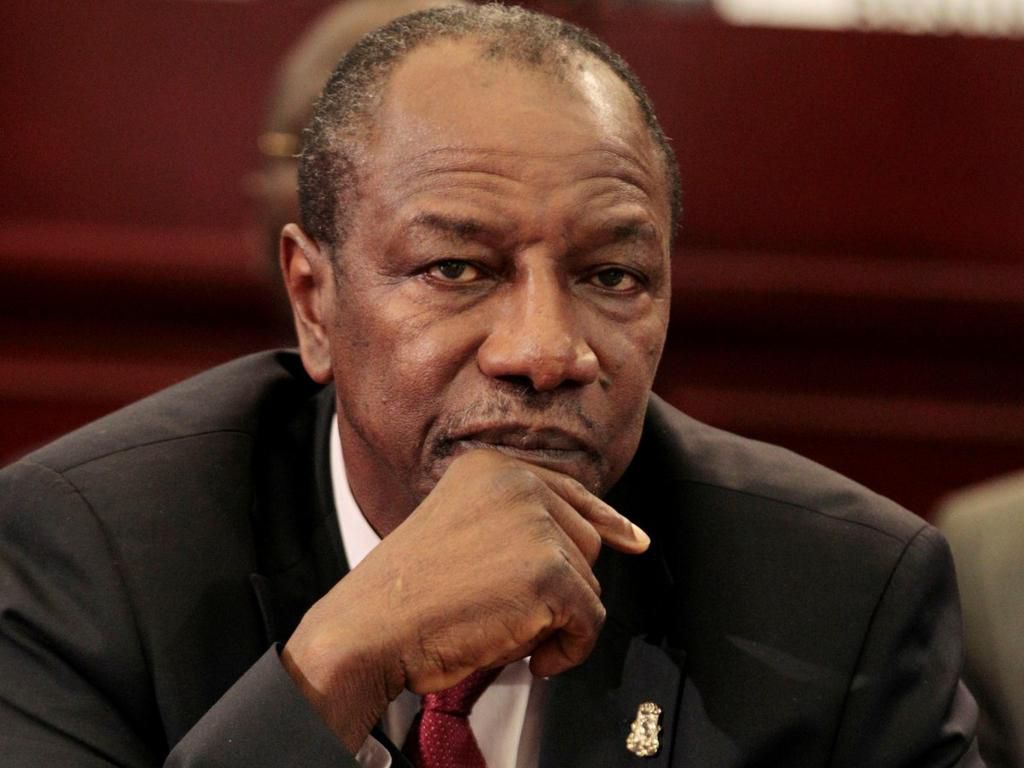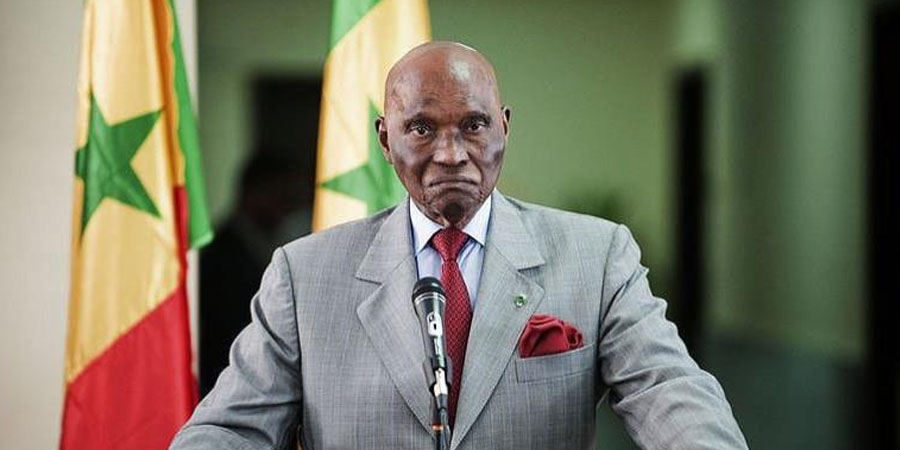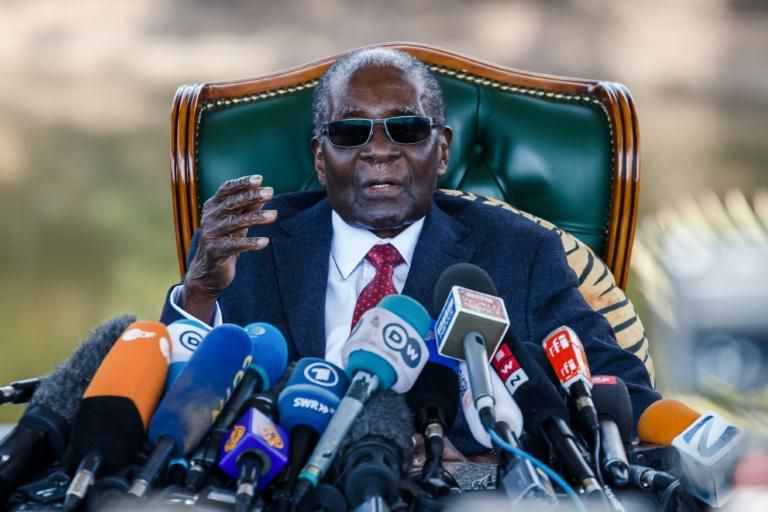Senegal’s Faye and 7 other African leaders who became president after imprisonment
)
Imprisonment can feel like the end of the world for many people, but it has turned out to become an inspiring origin story for many leaders.
From Nelson Mandela of South Africa to Bassirou Faye of Senegal, Africa has produced many presidents who rose to power from prison.
Incarceration paved the way for these leaders to become the number-one citizens of their countries — it’s more like prison even boosted their chances.
Pulse provides you with the list of all African leaders who became president after their imprisonment.
1. Nelson Mandela — South Africa
![Nelson Mandela is a unifying figure of peace [time]](https://image.api.sportal365.com/process/smp-images-production/pulse.com.gh/24072024/cb1bc163-28d4-43cc-a950-b1ebf65ecb11)
Nelson Mandela’s imprisonment is a popular story of the struggle for independence in Africa. The iconic anti-apartheid revolutionary leader was imprisoned for 27 years under the apartheid regime before becoming the President of South Africa from 1994 to 1999.
2. Jacob Zuma — South Africa

Years before becoming the President of South Africa in 2009, Jacob Zuma was imprisoned on Robben Island alongside Mandela for his involvement in anti-apartheid activities. He spent 10 years in prison after which he became the Vice-President of South Africa, deputising Thabo Mbeki, Mandela’s successor. In 2009, he was elected as the president of the country and left office in 2018.
3. Olusegun Obasanjo — Nigeria
![Former President, Olusegun Obasanjo. [Twitter:@seyiamakinde]](https://image.api.sportal365.com/process/smp-images-production/pulse.com.gh/24072024/b13be814-7476-4d07-b519-e815c45c5a74)
Olusegun Obasanjo, a former military head of state, was imprisoned by the military regime of General Sani Abacha for his alleged involvement in a coup plot. He was sentenced to 25 years in prison, later reduced to 15 years. Upon his release from prison in 1998 following Abacha’s mysterious death, Obasanjo became the president of the most populated country in Africa, serving the country from 1999 to 2007.
4. Alpha Condé — Guinea

After the 1998 presidential election in Congo, Alpha Condé, who contested the poll, was arrested and charged with attempting to organise forces to destabilise the government of Lansana Conté, a military official-turned-president. He was sentenced to five years imprisonment but later got a presidential pardon. In December 2010, he became the 4th president of Guinea.
5. Abdoulaye Wade — Senegal

Due to the protests that followed the 1988 general election, Abdoulaye Wade, who contested the election against the incumbent president, Abdou Diouf, was imprisoned but was subsequently pardoned.
Despite his incarceration, he continued to contest against Diouf, and in the 2000 presidential election, Wade defeated his political arch-rival after a runoff election. He became the first opposition leader to become president in Senegal, serving the country from 2000 to 2012.
6. Muhammadu Buhari — Nigeria
![Muhammadu Buhari's tenure will end on May 29, 2023. [Presidency]](https://image.api.sportal365.com/process/smp-images-production/pulse.com.gh/24072024/697709f6-b867-42ab-95a5-80cc89da6d9c)
In 1985, General Muhammadu Buhari ended up in jail after leading the country as a military leader. His successor, General Ibrahim Babangida, who came to power through a coup — the same way Buhari did — detained him in Benin prison for over two years on allegations of economic crimes.
However, 14 years after Nigeria ushered in the return of democracy, Buhari became Nigeria’s civilian president after several attempts.
7. Robert Mugabe — Zimbabwe

In 1964, Robert Mugabe was arrested for “subversive speech” and sent to prison for 10 years. While serving his prison term, he acquired a law degree and also led a coup, deposing Ndabaningi Sithole, the leader of the Zimbabwe African National Union (ZANU).
In late 1974, Mugabe was freed and became Zimbabwe’s first executive president in 1987.
8. Bassirou Faye — Senegal
![Bassirou Diomaye Faye, the incoming President of Senegal. [France 24]](https://image.api.sportal365.com/process/smp-images-production/pulse.com.gh/24072024/92a95df6-fe88-470d-a177-897c982b2d31)
Bassirou Diomaye Faye, a left-wing pan-Africanist, was sworn in as the President of Senegal on April 2, 2024, becoming the country’s youngest president.
The 44-year-old defeated the candidate of the ruling party 10 days after his release from prison, where he was held for 11 months over defamation allegations.
)
)
)
)
)